New Research - Keto Trial Promises New Treatment Option in Bipolar Disorder
New Research - Keto Trial Promises New Treatment Option in Bipolar Disorder
New Research - Keto Trial Promises New Treatment Option in Bipolar Disorder






Shannon Harwood
Shannon Harwood
Shannon Harwood
Posted:
Posted:
Posted:
03/2025
03/2025
03/2025
My Journey
My Journey
My Journey
My Strategies
My Strategies
My Strategies
My THINK + SMART Profile
My THINK + SMART Profile
My THINK + SMART Profile
Key Symptoms Addressed
Key Symptoms Addressed
Bipolar 2 completely healed.
Bipolar 2 completely healed.
My Top Three Strategies
My Top Three Strategies
Ketogenic Diet, Sleep/Circadian Rhythm Regularity, & Stress Management.
Ketogenic Diet, Sleep/Circadian Rhythm Regularity, & Stress Management.
T
T
H
H
Therapeutic
After resolution of bipolar 2, without symptoms to manage, I began a slow journey of tapering medications. This took three years. If you are able to do this with the support of your psychiatrist/doctor/clinician, then this is optimal.
The work of Mark Horowitz was enormously useful to me – this article, published in 2021 in peer reviewed journal was fantastic at explaining the general principles of hyperbolic tapering. Horowitz and Taylor published the Maudsley Deprescribing Guidelines last year (2024) which are clinical guidelines. The Maudsley Prescribing Guidelines have long been used by clinicians, now de-prescribing guidelines are also available on Amazon.
My adoption of the ketogenic diet and my tapering of medications were under the oversight of a doctor, but without their support. By this I mean that I still had a treating psychiatrist but they did not support my decision to use a ketogenic diet, and they did not support my choice to taper medications.
After resolution of bipolar 2, without symptoms to manage, I began a slow journey of tapering medications. This took three years. If you are able to do this with the support of your psychiatrist/doctor/clinician, then this is optimal.
The work of Mark Horowitz was enormously useful to me – this article, published in 2021 in peer reviewed journal was fantastic at explaining the general principles of hyperbolic tapering. Horowitz and Taylor published the Maudsley Deprescribing Guidelines last year (2024) which are clinical guidelines. The Maudsley Prescribing Guidelines have long been used by clinicians, now de-prescribing guidelines are also available on Amazon.
My adoption of the ketogenic diet and my tapering of medications were under the oversight of a doctor, but without their support. By this I mean that I still had a treating psychiatrist but they did not support my decision to use a ketogenic diet, and they did not support my choice to taper medications.
After resolution of bipolar 2, without symptoms to manage, I began a slow journey of tapering medications. This took three years. If you are able to do this with the support of your psychiatrist/doctor/clinician, then this is optimal.
The work of Mark Horowitz was enormously useful to me – this article, published in 2021 in peer reviewed journal was fantastic at explaining the general principles of hyperbolic tapering. Horowitz and Taylor published the Maudsley Deprescribing Guidelines last year (2024) which are clinical guidelines. The Maudsley Prescribing Guidelines have long been used by clinicians, now de-prescribing guidelines are also available on Amazon.
My adoption of the ketogenic diet and my tapering of medications were under the oversight of a doctor, but without their support. By this I mean that I still had a treating psychiatrist but they did not support my decision to use a ketogenic diet, and they did not support my choice to taper medications.
I
I
Integration
Integration
I take no medications or supplements. I do regular bloodwork to check for any dietary deficiencies. My LDL cholesterol has more than doubled, but I followed up with LDL sub-fraction testing and a CT scan for coronary calcium. I am in the lowest risk category for heart attack - I eat up to 80% fat in my diet. I am a "lean mass hyper responder" to a low carb diet. I am comfortable with this.
For more info on understanding a cholesterol panel I recommend this learning from Dr Paul Mason at Low Carb Down Under.
I take no medications or supplements. I do regular bloodwork to check for any dietary deficiencies. My LDL cholesterol has more than doubled, but I followed up with LDL sub-fraction testing and a CT scan for coronary calcium. I am in the lowest risk category for heart attack - I eat up to 80% fat in my diet. I am a "lean mass hyper responder" to a low carb diet. I am comfortable with this.
For more info on understanding a cholesterol panel I recommend this learning from Dr Paul Mason at Low Carb Down Under.
I take no medications or supplements. I do regular bloodwork to check for any dietary deficiencies. My LDL cholesterol has more than doubled, but I followed up with LDL sub-fraction testing and a CT scan for coronary calcium. I am in the lowest risk category for heart attack - I eat up to 80% fat in my diet. I am a "lean mass hyper responder" to a low carb diet. I am comfortable with this.
For more info on understanding a cholesterol panel I recommend this learning from Dr Paul Mason at Low Carb Down Under.
N
N
Nutritional
I always eat less than 20g carbs per day - often much less. I aim for no less than 90g protein (up to approx 130g) and keep fat roughly between 70-80% of energy intake. I eat when I am hungry and then I eat a full meal. I do not snack (the work of Dr. Jason Fung is a great resource if one is interested in understanding meal timing/snacking etc). It took a while to get used to, but now, I do not need to measure or think about macros unless I get curious. (Sometimes I get curious, try some new experiments, and measure macros etc). Mostly I just eat delicious food with enough fat and without/very low carbohydrates. Twice a year I do a 3-5 day fast (unrelated to ketogenic therapy - but possibly good for me)!
I always eat less than 20g carbs per day - often much less. I aim for no less than 90g protein (up to approx 130g) and keep fat roughly between 70-80% of energy intake. I eat when I am hungry and then I eat a full meal. I do not snack (the work of Dr. Jason Fung is a great resource if one is interested in understanding meal timing/snacking etc). It took a while to get used to, but now, I do not need to measure or think about macros unless I get curious. (Sometimes I get curious, try some new experiments, and measure macros etc). Mostly I just eat delicious food with enough fat and without/very low carbohydrates. Twice a year I do a 3-5 day fast (unrelated to ketogenic therapy - but possibly good for me)!
I always eat less than 20g carbs per day - often much less. I aim for no less than 90g protein (up to approx 130g) and keep fat roughly between 70-80% of energy intake. I eat when I am hungry and then I eat a full meal. I do not snack (the work of Dr. Jason Fung is a great resource if one is interested in understanding meal timing/snacking etc). It took a while to get used to, but now, I do not need to measure or think about macros unless I get curious. (Sometimes I get curious, try some new experiments, and measure macros etc). Mostly I just eat delicious food with enough fat and without/very low carbohydrates. Twice a year I do a 3-5 day fast (unrelated to ketogenic therapy - but possibly good for me)!
K
K
Ketosis
I test sometimes, or not at all. However, in the first year I tested regularly each day - a couple of hours after waking. This was important - I needed to know if I was in ketosis. I needed to know what kicked me out of ketosis. And I liked to know roughly how deep I was in ketosis. I used the cheap urine-stick testing and this was adequate in the first year to establish that I was in ketosis.
As I advanced, I bought myself a blood monitor (which I really like), but it is not needed to begin this therapy. These days I test when I am curious. But I can feel whether I am in or out of ketosis, so this is more for curiosity that for need.
I feel best between 1.5 and 3 mmol. I get edgy and uncomfortable if ketones stay too high for too long (above 4). And I do not feel as good under 1 mmol.
I sometimes test glucose but have never been pre-diabetic so this is driven by curiosity. I sometimes calculate GKI. I spend very little time testing/monitoring these things now - but in my first year I measured much more frequently as I got to know how my body and symptoms responded to dietary intake.
I test sometimes, or not at all. However, in the first year I tested regularly each day - a couple of hours after waking. This was important - I needed to know if I was in ketosis. I needed to know what kicked me out of ketosis. And I liked to know roughly how deep I was in ketosis. I used the cheap urine-stick testing and this was adequate in the first year to establish that I was in ketosis.
As I advanced, I bought myself a blood monitor (which I really like), but it is not needed to begin this therapy. These days I test when I am curious. But I can feel whether I am in or out of ketosis, so this is more for curiosity that for need.
I feel best between 1.5 and 3 mmol. I get edgy and uncomfortable if ketones stay too high for too long (above 4). And I do not feel as good under 1 mmol.
I sometimes test glucose but have never been pre-diabetic so this is driven by curiosity. I sometimes calculate GKI. I spend very little time testing/monitoring these things now - but in my first year I measured much more frequently as I got to know how my body and symptoms responded to dietary intake.
I test sometimes, or not at all. However, in the first year I tested regularly each day - a couple of hours after waking. This was important - I needed to know if I was in ketosis. I needed to know what kicked me out of ketosis. And I liked to know roughly how deep I was in ketosis. I used the cheap urine-stick testing and this was adequate in the first year to establish that I was in ketosis.
As I advanced, I bought myself a blood monitor (which I really like), but it is not needed to begin this therapy. These days I test when I am curious. But I can feel whether I am in or out of ketosis, so this is more for curiosity that for need.
I feel best between 1.5 and 3 mmol. I get edgy and uncomfortable if ketones stay too high for too long (above 4). And I do not feel as good under 1 mmol.
I sometimes test glucose but have never been pre-diabetic so this is driven by curiosity. I sometimes calculate GKI. I spend very little time testing/monitoring these things now - but in my first year I measured much more frequently as I got to know how my body and symptoms responded to dietary intake.
S
S
Sleep
Sleep
Sleep
In the years before ketogenic therapy I did a "deep dive" on sleep. I wore a sleep tracker for years, but no longer need to do this - it was useful as I could see the effects of coffee, alcohol and disrupted patterns. I could also clearly see the effect of bipolar episodes in my sleep charts. There was no doubt that sleep disturbance ran hand-on-hand with illness.
I absolutely keep a regular bedtime and waking time. During previous times of insomnia I learnt how to "deep rest" (think yoga nigra, sleep hypnosis tapes, etc). I do not use computer screens at night. I have my last meal several hours before I sleep. I sometimes use blue-light blocking glasses and every light in my house has a dimmer switch! No bright lights in the evening.
I walk to work in the mornings. I often soak in the sunlight. I prioritize sleep. I really do - I simply do not have late nights. Over the years this has become a way of life. In the first few years keeping such a regular sleep schedule involved a degree of sacrifice. This is a sacrifice that has paid dividends over and over again.
As an aside: after the initial keto adaptation period, the ketogenic diet has further improved my sleep. I go to bed. I go to sleep. I wake up rested. I never thought I would achieve this for my life - 35 years of bipolar disorder had also been 35 years of fractured sleep. All this is now healed.
In the years before ketogenic therapy I did a "deep dive" on sleep. I wore a sleep tracker for years, but no longer need to do this - it was useful as I could see the effects of coffee, alcohol and disrupted patterns. I could also clearly see the effect of bipolar episodes in my sleep charts. There was no doubt that sleep disturbance ran hand-on-hand with illness.
I absolutely keep a regular bedtime and waking time. During previous times of insomnia I learnt how to "deep rest" (think yoga nigra, sleep hypnosis tapes, etc). I do not use computer screens at night. I have my last meal several hours before I sleep. I sometimes use blue-light blocking glasses and every light in my house has a dimmer switch! No bright lights in the evening.
I walk to work in the mornings. I often soak in the sunlight. I prioritize sleep. I really do - I simply do not have late nights. Over the years this has become a way of life. In the first few years keeping such a regular sleep schedule involved a degree of sacrifice. This is a sacrifice that has paid dividends over and over again.
As an aside: after the initial keto adaptation period, the ketogenic diet has further improved my sleep. I go to bed. I go to sleep. I wake up rested. I never thought I would achieve this for my life - 35 years of bipolar disorder had also been 35 years of fractured sleep. All this is now healed.
M
M
Move
Move
Move
Sometime I am good. Sometimes I am lazy. I am not a perfect human being! When I am good, I walk and lift weights/body weight resistance training. Both have mental health benefits as well as physical benefits. I like to be strong.
After beginning ketogenic therapy I gained physical energy back into my life. I wake refreshed and am no longer fatigued during the day or in the evenings. This has opened up possibilities to easily pursue physical health goals. It is hard to workout when exhausted. Now that I have energy, working out or regularly walking is a choice, not a chore.
At so many levels of my life, I now have choice. "Choice" has replaced "managing" "enduring" and "merely surviving". Thriving is now actually a possibility - and so sometimes, when I am "good", I do push-ups and enjoy them!
Sometime I am good. Sometimes I am lazy. I am not a perfect human being! When I am good, I walk and lift weights/body weight resistance training. Both have mental health benefits as well as physical benefits. I like to be strong.
After beginning ketogenic therapy I gained physical energy back into my life. I wake refreshed and am no longer fatigued during the day or in the evenings. This has opened up possibilities to easily pursue physical health goals. It is hard to workout when exhausted. Now that I have energy, working out or regularly walking is a choice, not a chore.
At so many levels of my life, I now have choice. "Choice" has replaced "managing" "enduring" and "merely surviving". Thriving is now actually a possibility - and so sometimes, when I am "good", I do push-ups and enjoy them!
A
A
Avoid
Avoid
Avoid
I limit caffeine. I rarely drink any alcohol - it does not agree with me, and it agrees with me less as I age, and it interrupts my sleep to a large degree which is counterproductive for me with wellness.
With less to cope with in my life, I turn less to self-medication/soothing. Recreational drug use (marijuana) and cigarettes are no longer part of my life.
I have developed substantial, and varied, ways of managing stress. Managing stress has been critical for me.
I limit caffeine. I rarely drink any alcohol - it does not agree with me, and it agrees with me less as I age, and it interrupts my sleep to a large degree which is counterproductive for me with wellness.
With less to cope with in my life, I turn less to self-medication/soothing. Recreational drug use (marijuana) and cigarettes are no longer part of my life.
I have developed substantial, and varied, ways of managing stress. Managing stress has been critical for me.
R
R
Rebuild
Rebuild
Rebuild
I cannot rebuild 35 years. That time has happened. I cannot go back. There has been much grief, and a sense of incredulity, and sometimes, even anger in my healing process. I cannot rebuild what this illness took from me. However, I am grateful to step into my future unencumbered by Bipolar 2 disorder. And I have learnt a lot from my previous journey. There was learning and hard won wisdom that came from those years. I know myself well - bipolar brought me depths of understanding I would not have access to otherwise. The emotional range that is present in Bipolar 2 disorder was a learning ground. I would not be who I am if I had not experienced these things. I may have struggled and missed out on some things - but there is no doubt I gained in other ways. I am now who I am (and that is ok with me).
But I would spare others suffering if I could. And so I pursue advocacy for this form of treatment - and I do so in the face of the messaging of hopelessness that is prominent in mainstream psychiatry. Bipolar 2 is not always a life sentence of chronic illness and medication. Healing is possible.
I cannot rebuild 35 years. That time has happened. I cannot go back. There has been much grief, and a sense of incredulity, and sometimes, even anger in my healing process. I cannot rebuild what this illness took from me. However, I am grateful to step into my future unencumbered by Bipolar 2 disorder. And I have learnt a lot from my previous journey. There was learning and hard won wisdom that came from those years. I know myself well - bipolar brought me depths of understanding I would not have access to otherwise. The emotional range that is present in Bipolar 2 disorder was a learning ground. I would not be who I am if I had not experienced these things. I may have struggled and missed out on some things - but there is no doubt I gained in other ways. I am now who I am (and that is ok with me).
But I would spare others suffering if I could. And so I pursue advocacy for this form of treatment - and I do so in the face of the messaging of hopelessness that is prominent in mainstream psychiatry. Bipolar 2 is not always a life sentence of chronic illness and medication. Healing is possible.
T
T
Track
Track
Track
I track my markers of health through regular bloodwork.
I track my markers of health through regular bloodwork.
Helpful Links
Helpful Links
Defeat Diabetes - Program of Prof Peter Brukner. Great recipes and a platform of support. See also his publications.
Youtube - My Zero Carb Life (upbeat "coaching" on zero carb diets with an approach that emphasizes individual paths and experimentation and measurement in order to reach goals).
Ultra-Processed People - Dr. Chris Van Tulleken. Such a fascinating book - well referenced to enable further reading.
The Maudsley Deprescribing Guidelines - Horowitz and Taylor.
A Method for Tapering Antipsychotic Treatment That May Minimize the Risk of Relapse - Horowitz. One article - THIS article - explains the principles of hyperbolic tapering - I believe this understanding is essential to being able to taper psychiatric medications successfully, if tapering is the right path for you.
Change Your Diet, Change Your Mind - Dr. Georgia Ede. If you wish to start keto diet for mental health - this is the best resource all in one package.
The Obesity Code - Dr. Jason Fung. A great introduction to understanding the effect of insulin in the body.
Brain Energy: A Revolutionary Breakthrough in Understanding Mental Health - Assoc Prof Chris Palmer. THIS puts forward the theory of why metabolic therapy heals mental disorder. A brave book - an exciting book.
Defeat Diabetes - Program of Prof Peter Brukner. Great recipes and a platform of support. See also his publications.
Youtube - My Zero Carb Life (upbeat "coaching" on zero carb diets with an approach that emphasizes individual paths and experimentation and measurement in order to reach goals).
Ultra-Processed People - Dr. Chris Van Tulleken. Such a fascinating book - well referenced to enable further reading.
The Maudsley Deprescribing Guidelines - Horowitz and Taylor.
A Method for Tapering Antipsychotic Treatment That May Minimize the Risk of Relapse - Horowitz. One article - THIS article - explains the principles of hyperbolic tapering - I believe this understanding is essential to being able to taper psychiatric medications successfully, if tapering is the right path for you.
Change Your Diet, Change Your Mind - Dr. Georgia Ede. If you wish to start keto diet for mental health - this is the best resource all in one package.
The Obesity Code - Dr. Jason Fung. A great introduction to understanding the effect of insulin in the body.
Brain Energy: A Revolutionary Breakthrough in Understanding Mental Health - Assoc Prof Chris Palmer. THIS puts forward the theory of why metabolic therapy heals mental disorder. A brave book - an exciting book.
More THINK + SMART Profiles
More THINK + SMART Profiles
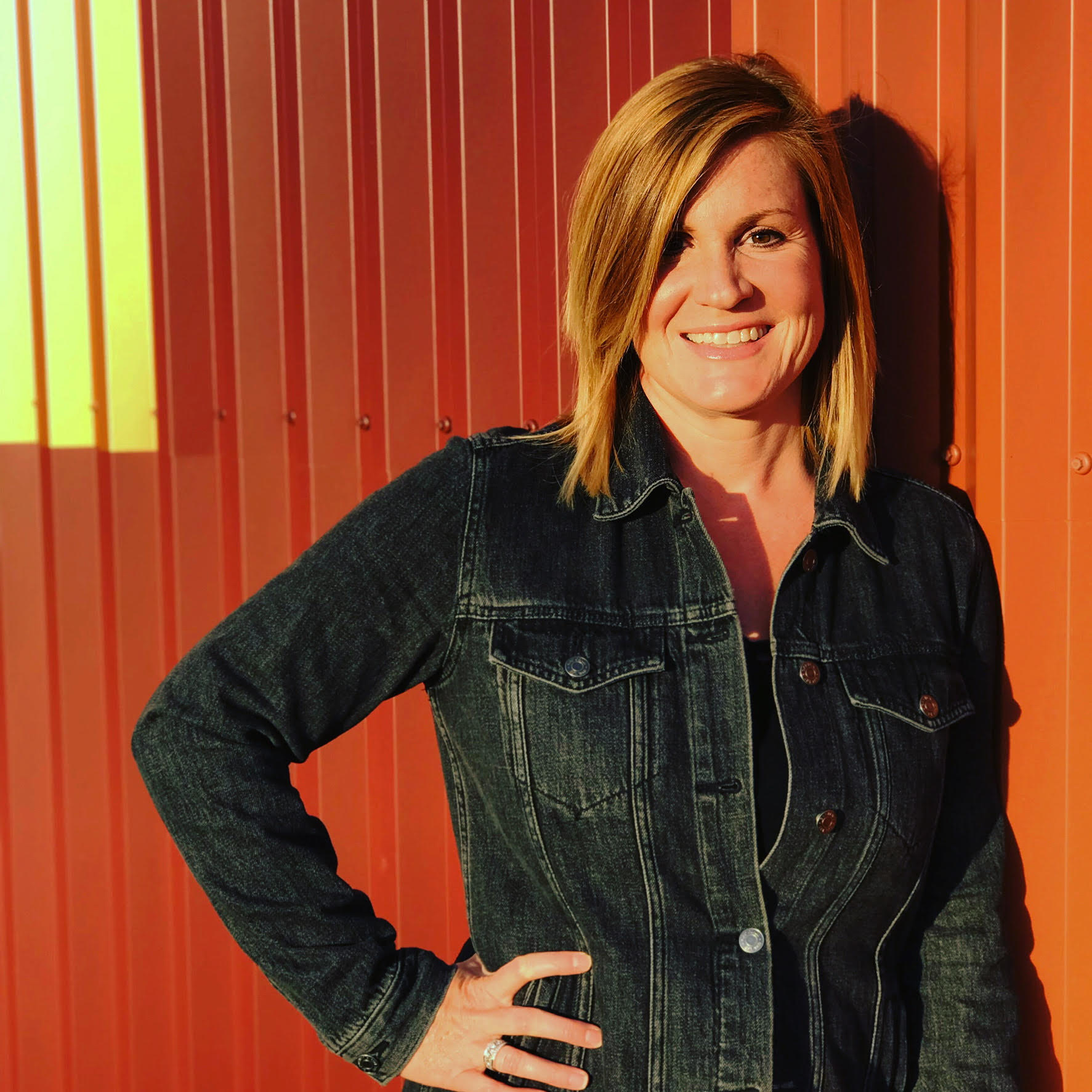

Emily Anne Herrick
In remission from
Depression


Matt Baszucki
Recovered from
Bipolar 1


Lauren Kennedy West
In remission from
Schizoaffective Disorder




Caroline Beckwith
In remission from
Anorexia Nervosa


Wesley Braden
Managing
Bipolar 2




Neseret Bemient
In remission from
Antidepressant Induced Bipolar 2


Eric Rodgers
In remission from
Depression




Mia Mendez
In remission from
Bipolar Disorder




Robyn Dobbins
In remission from
Bipolar, Depression, OCD
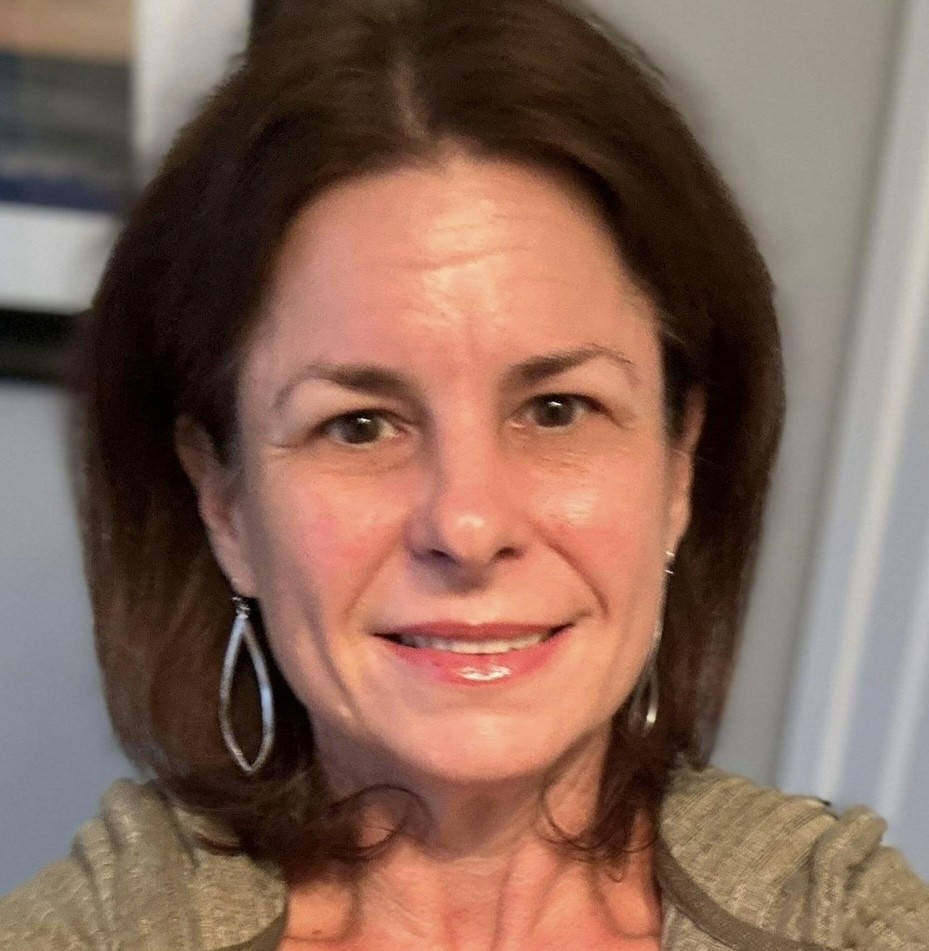

Harmony Bright
Recovering from
Schizophrenia


Steven T.
Recovering from
Bipolar 2 Mixed, Substance Abuse




Donika Hristova
Recovered from
Bipolar Type 2, Binge Eating Disorder


Lori Graham
Recovering from
Major Depression & Generalized Anxiety


Tanner L.
In remission from
Obsessive-Compulsive Disorder (OCD)




Dyane Harwood
Thriving with
Bipolar 1


Henk van Wijk
In remission from
PTSD


Lily Zhang
In remission from
Depression


Lori
Treating
Bipolar, ADHD & Binge Eating Disorder


Kelsey S
Managing
Depression, OCD, Trichotillomania, & PTSD


Lewis Anstee
Recovered from
Paranoid Schizophrenia




Shannon Harwood
Recovered from
Bipolar 2


Lexa Martinez de la Cueva
In remission from
Schizoaffective Disorder
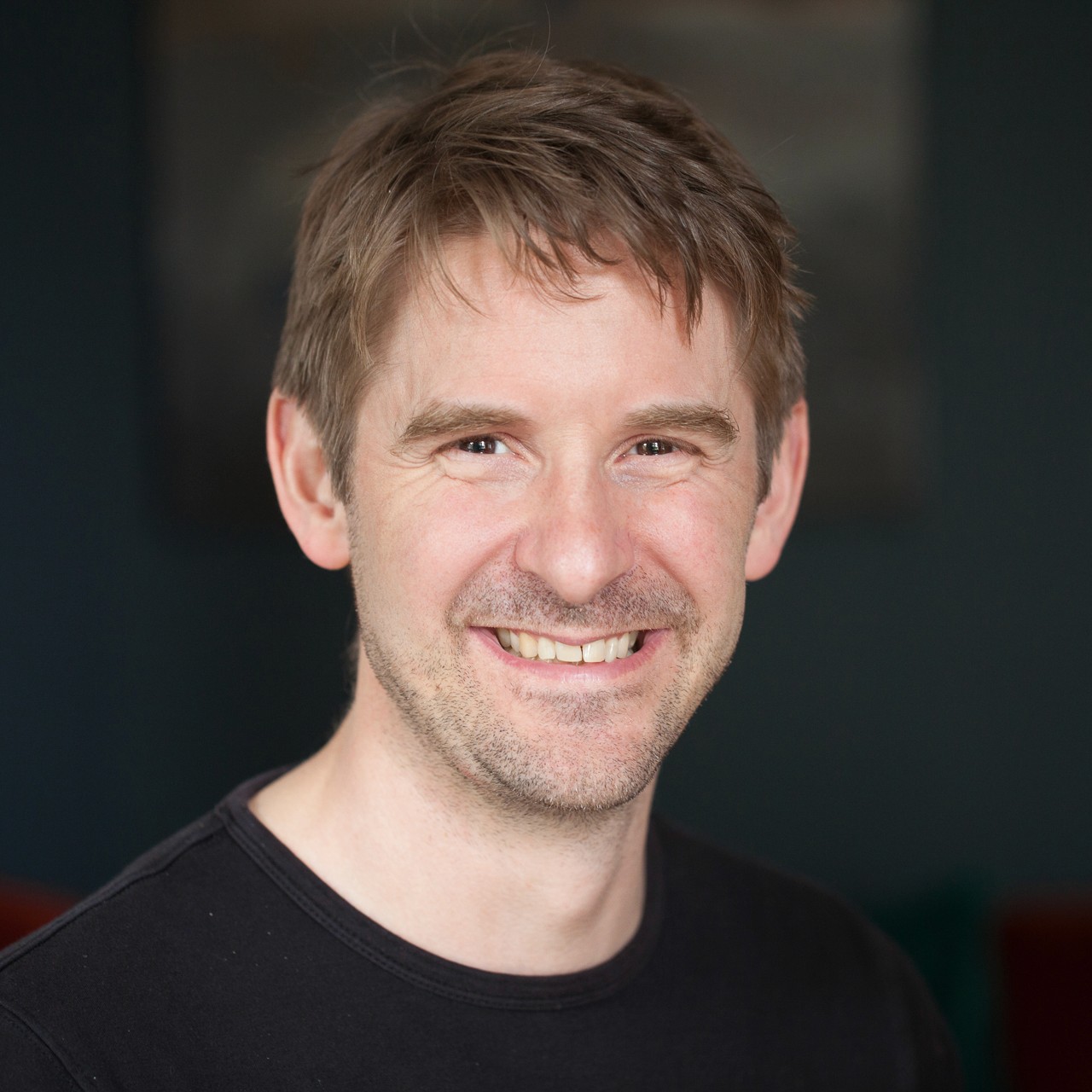



Oliver Seligman
Managing
Bipolar 1


Elisabeth Sloetjes
Recovered from
Bipolar 2 with Rapid Cycling


J.P. Weedon
Recovering from
Bipolar Disorder


Michelle Hurn
In remission from
Anorexia, Depression & Anxiety


Valerie Anne Smith
In remission from
Schizophrenia, OCD & Anorexia


Moira Newiss
Treating
Depression & Anxiety


Brianna Mitchell
Recovering from
Pre Menstrual Dysphoric Disorder


Natasha Smikles
Managing
ADHD & Anxiety


Mimi Morgan
Recovered from
Parkinsonism & Cognitive Slowing


Michael Belanger
Managing
Autism


Vanessa
Recovering from
Bipolar Disorder & Minor Depression


Paul Corfield
Managing
Bipolar 1 & Autism
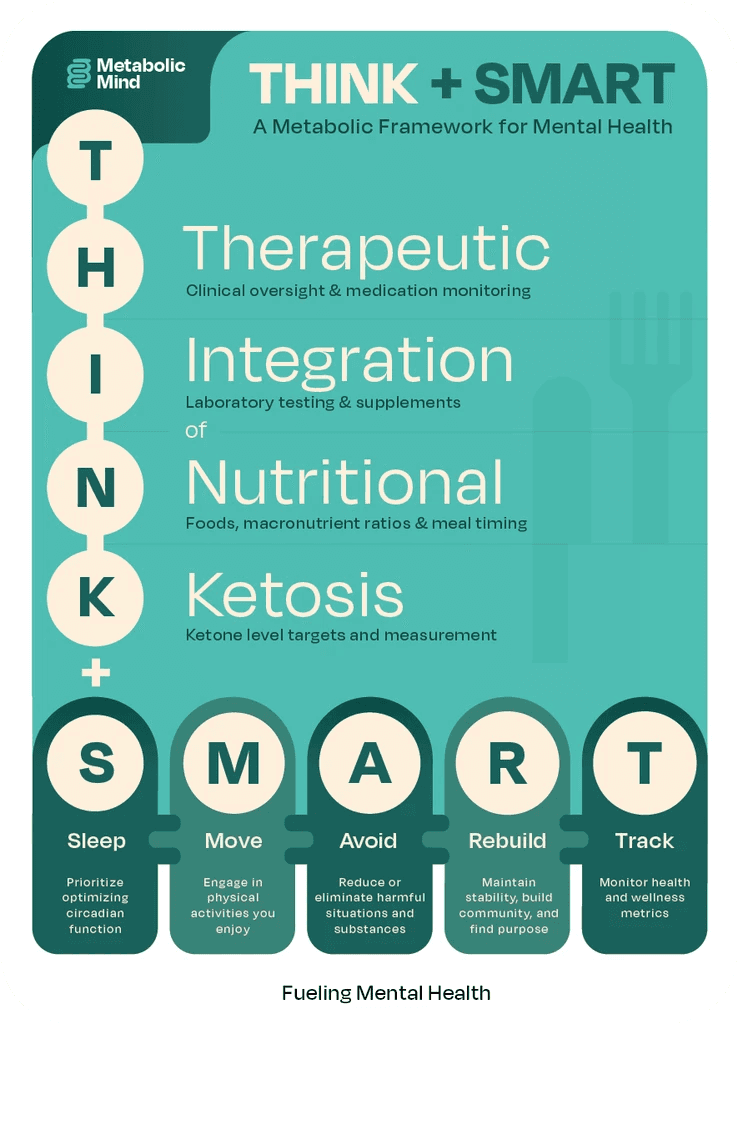

Share Your Strategies
Thriving with
the Community

Emily Anne Herrick
In remission from
Depression
Started Journey
2022
View Profile and Videos

Matt Baszucki
Recovered from
Bipolar 1
Started Journey
2021
View Profile and Videos

Lauren Kennedy West
In remission from
Schizoaffective Disorder
Started Journey
2023
View Profile and Videos


Caroline Beckwith
In remission from
Anorexia Nervosa
Started Journey
2019
View Profile and Videos

Wesley Braden
Managing
Bipolar 2
Started Journey
2023
View Profile and Videos


Neseret Bemient
In remission from
Antidepressant Induced Bipolar 2
Started Journey
2021
View Profile and Videos

Eric Rodgers
In remission from
Depression
Started Journey
2016
View Profile and Videos


Mia Mendez
In remission from
Bipolar Disorder
Started Journey
2018
View Profile and Videos


Robyn Dobbins
In remission from
Bipolar, Depression, OCD
Started Journey
2017
View Profile and Videos

Harmony Bright
Recovering from
Schizophrenia
Started Journey
2023
View Profile and Videos

Steven T.
Recovering from
Bipolar 2 Mixed, Substance Abuse
Started Journey
2021
View Profile and Videos


Donika Hristova
Recovered from
Bipolar Type 2, Binge Eating Disorder
Started Journey
2021
View Profile and Videos

Lori Graham
Recovering from
Major Depression & Generalized Anxiety
Started Journey
2024
View Profile

Tanner L.
In remission from
Obsessive-Compulsive Disorder (OCD)
Started Journey
2023
View Profile and Videos


Dyane Harwood
Thriving with
Bipolar 1
Started Journey
2022
View Profile and Videos

Henk van Wijk
In remission from
PTSD
Started Journey
2021
View Profile

Lily Zhang
In remission from
Depression
Started Journey
2024
View Profile and Videos

Lori
Treating
Bipolar, ADHD & Binge Eating Disorder
Started Journey
2024
View Profile

Kelsey S
Managing
Depression, OCD, Trichotillomania, & PTSD
Started Journey
2022
View Profile

Lewis Anstee
Recovered from
Paranoid Schizophrenia
Started Journey
2024
View Profile


Shannon Harwood
Recovered from
Bipolar 2
Started Journey
2021
View Profile and Videos

Lexa Martinez de la Cueva
In remission from
Schizoaffective Disorder
Started Journey
2023
View Profile and Videos


Oliver Seligman
Managing
Bipolar 1
Started Journey
2022
View Profile and Videos

Elisabeth Sloetjes
Recovered from
Bipolar 2 with Rapid Cycling
Started Journey
2023
View Profile

J.P. Weedon
Recovering from
Bipolar Disorder
Started Journey
2022
View Profile

Michelle Hurn
In remission from
Anorexia, Depression & Anxiety
Started Journey
2019
View Profile

Valerie Anne Smith
In remission from
Schizophrenia, OCD & Anorexia
Started Journey
2017
View Profile and Videos

Moira Newiss
Treating
Depression & Anxiety
Started Journey
2019
View Profile

Brianna Mitchell
Recovering from
Pre Menstrual Dysphoric Disorder
Started Journey
2024
View Profile

Natasha Smikles
Managing
ADHD & Anxiety
Started Journey
2024
View Profile and Videos

Mimi Morgan
Recovered from
Parkinsonism & Cognitive Slowing
Started Journey
2021
View Profile and Videos

Michael Belanger
Managing
Autism
Started Journey
2022
View Profile

Vanessa
Recovering from
Bipolar Disorder & Minor Depression
Started Journey
2024
View Profile

Paul Corfield
Managing
Bipolar 1 & Autism
Started Journey
2023
View Profile

Share Your Strategies
Thriving with
the Community


Emily Anne Herrick
In remission from
Depression


Matt Baszucki
Recovered from
Bipolar 1


Lauren Kennedy West
In remission from
Schizoaffective Disorder


Caroline Beckwith
In remission from
Anorexia Nervosa




Wesley Braden
Managing
Bipolar 2


Neseret Bemient
In remission from
Antidepressant Induced Bipolar 2




Eric Rodgers
In remission from
Depression


Mia Mendez
In remission from
Bipolar Disorder




Robyn Dobbins
In remission from
Bipolar, Depression, OCD




Harmony Bright
Recovering from
Schizophrenia


Steven T.
Recovering from
Bipolar 2 Mixed, Substance Abuse


Donika Hristova
Recovered from
Bipolar Type 2, Binge Eating Disorder




Lori Graham
Recovering from
Major Depression & Generalized Anxiety


Tanner L.
In remission from
Obsessive-Compulsive Disorder (OCD)


Dyane Harwood
Thriving with
Bipolar 1




Henk van Wijk
In remission from
PTSD


Lily Zhang
In remission from
Depression


Lori
Treating
Bipolar, ADHD & Binge Eating Disorder


Kelsey S
Managing
Depression, OCD, Trichotillomania, & PTSD


Lewis Anstee
Recovered from
Paranoid Schizophrenia


Shannon Harwood
Recovered from
Bipolar 2




Lexa Martinez de la Cueva
In remission from
Schizoaffective Disorder


Oliver Seligman
Managing
Bipolar 1




Elisabeth Sloetjes
Recovered from
Bipolar 2 with Rapid Cycling


J.P. Weedon
Recovering from
Bipolar Disorder


Michelle Hurn
In remission from
Anorexia, Depression & Anxiety


Valerie Anne Smith
In remission from
Schizophrenia, OCD & Anorexia


Moira Newiss
Treating
Depression & Anxiety


Brianna Mitchell
Recovering from
Pre Menstrual Dysphoric Disorder


Natasha Smikles
Managing
ADHD & Anxiety


Mimi Morgan
Recovered from
Parkinsonism & Cognitive Slowing


Michael Belanger
Managing
Autism


Vanessa
Recovering from
Bipolar Disorder & Minor Depression


Paul Corfield
Managing
Bipolar 1 & Autism


Share Your Strategies
Thriving with
the Community
Begin Your Journey
When you are ready, submit your email so we can deliver the THINK+SMART worksheet to your inbox, along with instructions and periodic updates.

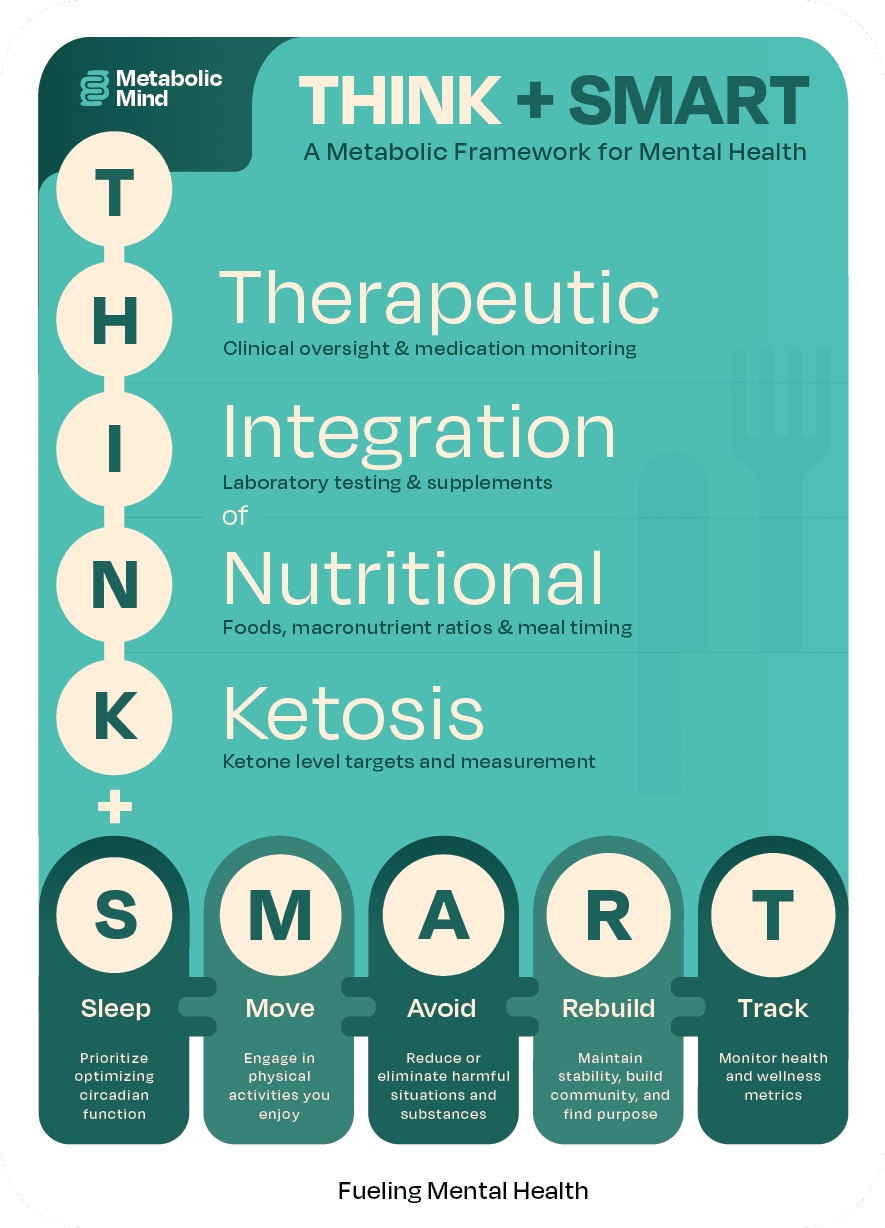
Improve Your Mental Health
Start Your Journey
Begin Your Journey
When you are ready, submit your email so we can deliver the THINK+SMART worksheet to your inbox, along with instructions and periodic updates.


Improve Your Mental Health
Start Your Journey
Begin Your Journey
When you are ready, submit your email so we can deliver the THINK+SMART worksheet to your inbox, along with instructions and periodic updates.


Improve Your Mental Health
Start Your Journey
Begin Your Journey
When you are ready, submit your email so we can deliver the THINK+SMART worksheet to your inbox, along with instructions and periodic updates.


Improve Your Mental Health
Start Your Journey
